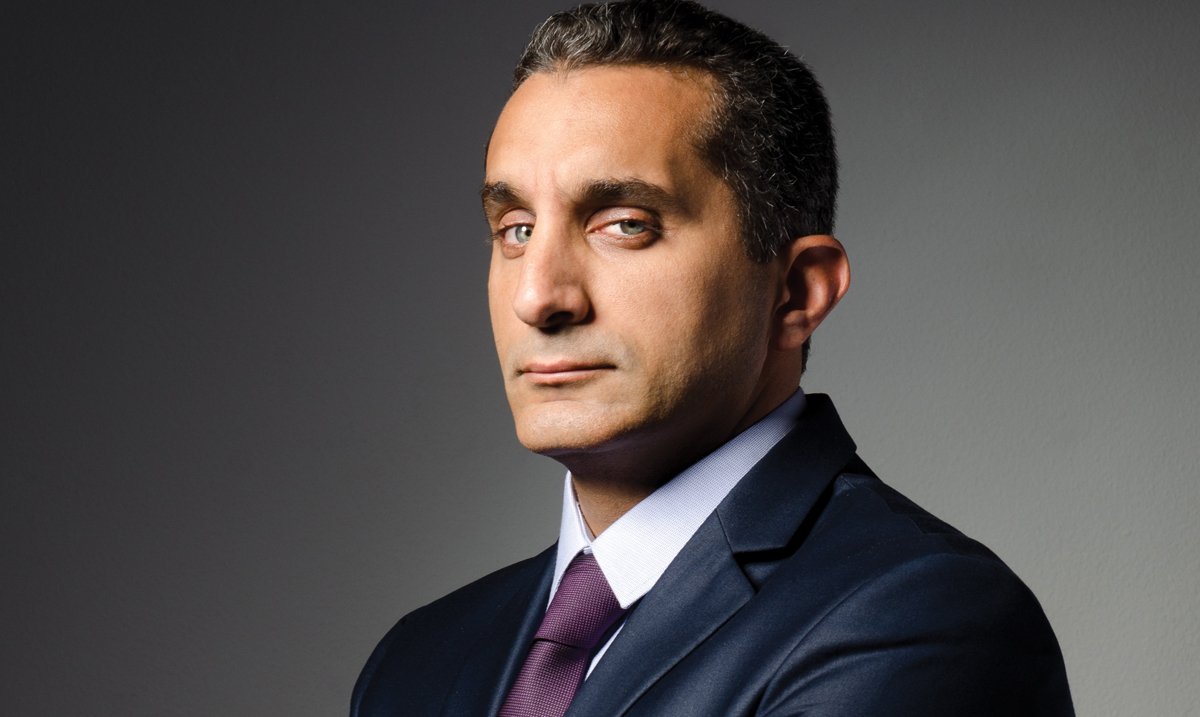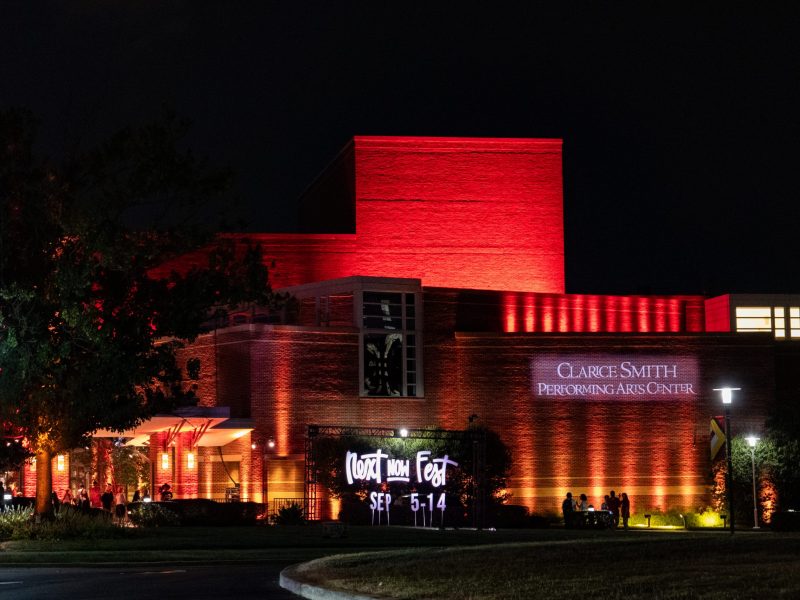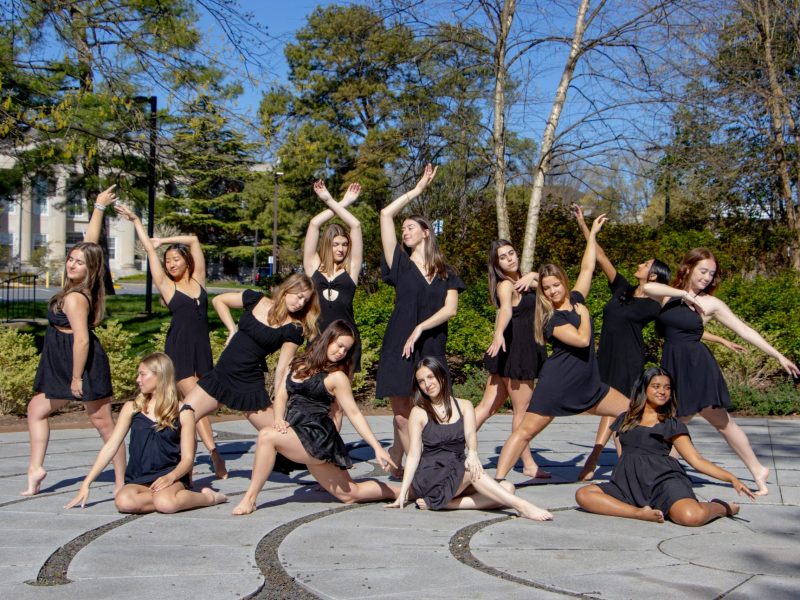After six hours of ridicule and interrogation by the police, terrified Egyptian political satirist and former heart surgeon Bassem Youssef asked Jon Stewart for advice. Youssef said Stewart told him to use this fear, to make fun of it.
In a full theater at The Clarice Smith Performing Arts Center on Tuesday night, Youssef delivered a talk titled: “The Joke is Mightier than the Sword” in which he delivered anecdotes such as this. He talked about the Egyptian media’s reaction to the country’s revolution in 2011 and told his own story of trying to combat Egyptian rulers’ regimes with humor.
Before Youssef spoke, the audience buzzed with excited conversation. Junior government and politics major Jack Lewis commented on the importance of free speech, calling it the “cornerstone of art.”
“Limiting speech limits our ability as citizens to have power and influence over our government,” he said.
Some students said they did not know who Youssef was, but others agreed with Lewis.
Olivia Delaplaine, sophomore government and politics major, said she has watched Youssef’s YouTube channel, and described free speech as “something inherent to having a democracy.”
Youssef began his talk with the story of Egypt, littered with jokes about religion, gender and other sensitive matters. It seemed as though nothing was off limits, as Youssef said satire disrupts the narrative of authority.
He focused largely on how the Egyptian media silenced its people during the 2011 revolution by dehumanizing them, which he explored in his lecture
The first stage, he said, was alienating and degrading the revolutionaries. Then it escalated not only to dehumanization, but also to encouragement of violence.
During this time, Youssef called himself a “watchdog for the media,” suggesting the need for a watchdog of the watchdogs calls into question the horrors of corrupt media.
The groups of revolutionaries were not the only ones targeted by the Egyptian media. He showed clips of the regime after the revolution attempting to dismantle his show and spreading bogus lies, such as: he is a clown raised in “sex swamps.”
This may be surprising to individuals who are accustomed to a place where shows such as The Daily Show — formerly with Jon Stewart and now hosted by Trevor Noah — can circulate widely.
“I don’t think the United States could handle [not having free speech.]” said Nourjannah Hendi, a visiting freshman from Georgetown University. She said in the past she has taken her right to free speech for granted.
Youssef littered his talk with jokes, but did not fail to discuss serious topics. Lucy Dalglish, dean of the journalism school, said because people laugh, the truth can sneak up on you.
“Satirists can speak truth to power on a daily basis in a way journalists can not,” she said.
Youssef’s talk made this clear with an intertwined barrage of laughter and meditations on horrifying injustice.



